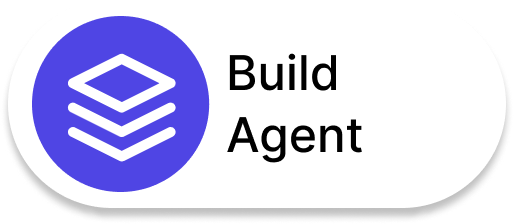Salesforce DevOps Center is a centralized platform that provides a unified environment for implementing and managing DevOps practices specific to Salesforce development. It acts as a hub for collaboration, automation, and monitoring throughout the entire Salesforce development lifecycle.
In this blog, you will discover:
- Definition of Salesforce DevOps
- How to design a Salesforce DevOps Center
- How to deal with the challenges
What is Salesforce DevOps?
Salesforce DevOps is a set of practices, methodologies, and tools designed to enhance the collaboration and communication between development and operations teams in the Salesforce environment. It aims to streamline and automate the processes involved in the development, testing, deployment, and maintenance of Salesforce applications. At its core, Salesforce DevOps seeks to break down silos between traditionally isolated development and operations functions, fostering a culture of continuous improvement, collaboration, and efficiency.
DevOps goes beyond the conventional software development lifecycle by addressing the unique challenges and characteristics of the Salesforce platform. It involves the integration of various tools and practices to enable a seamless and automated workflow, allowing development teams to deliver high-quality applications faster and with more reliability.
Importance of DevOps in Salesforce Development
The adoption of DevOps principles in Salesforce development is crucial for several reasons:
- Accelerated Development Cycles: DevOps practices facilitate faster and more frequent releases, allowing organizations to respond quickly to changing business requirements and customer needs.
- Enhanced Collaboration: By fostering collaboration between development, testing, and operations teams, DevOps breaks down communication barriers and encourages a more cohesive approach to Salesforce development.
- Improved Quality and Stability: Automated testing, continuous integration, and continuous deployment help identify and address issues early in the development process, leading to higher-quality and more stable Salesforce applications.
- Reduced Manual Effort and Errors: Automation of repetitive tasks, such as deployment and testing, minimizes the likelihood of human errors, resulting in more reliable and consistent Salesforce deployments.
- Optimized Resource Utilization: DevOps practices enable organizations to optimize resource utilization by automating resource-intensive tasks, reducing downtime, and ensuring more efficient use of development and operational resources
Also Read – Salesforce Deployment Tools
The Core Pillars of Salesforce DevOps
Streamlining Development Processes
- Automation: Implement automation for repetitive tasks, such as code compilation, testing, and deployment.
- Integration Testing: Perform automated integration tests to ensure that code changes do not negatively impact existing functionalities.
- Code Reviews: Integrate tools for code reviews to maintain code quality and catch issues early in the development process.
Ensuring Code Consistency
- Coding Standards: Enforce coding standards through automated tools to ensure consistency across the development team.
- Linting and Static Code Analysis: Use tools to identify and fix issues related to code formatting, style, and potential bugs.
- Code Quality Metrics: Establish metrics to measure and monitor code quality, identifying areas for improvement.
Accelerating Time-to-Market
- Parallel Development: Enable multiple developers to work on different features simultaneously by breaking down work into smaller tasks.
- Automated Deployment: Utilize CI/CD pipelines for automated and repeatable deployments, reducing manual errors and deployment time.
- Feature Flags: Implement feature toggles to turn specific features on/off without deploying code changes, facilitating phased releases.
Designing Your Salesforce DevOps Center
Assembling the Dream Team
- DevOps Engineer: Responsible for automating and streamlining the development and deployment processes.
- Salesforce Developers: Skilled in Apex, Visualforce, Lightning components, and other Salesforce technologies.
- Release Manager: Manages the end-to-end release process, ensuring smooth transitions between development, testing, and production environments.
- Quality Assurance (QA) Engineer: Ensures the quality of the Salesforce application through testing and validation.
- System Administrator: Manages and configures Salesforce instances, handling user access, security, and data integrity.
Collaborative Workflows and Cross-functional Teams
- Daily Stand-ups: Conduct short, daily meetings to discuss progress, challenges, and plans.
- Cross-functional Collaboration: Encourage collaboration between developers, administrators, and QA engineers throughout the development lifecycle.
- Version Control: Implement a version control system (e.g., Git) to manage changes and collaborate effectively.
Agile Principles in Salesforce Development
- Customer Collaboration over Contract Negotiation: Regularly engage stakeholders for feedback and prioritize features based on customer needs.
- Responding to Change over Following a Plan: Embrace change and iterate based on user feedback.
Sprint Planning and Backlog Refinement
- Backlog Grooming: Regularly review and prioritize the product backlog, ensuring it aligns with business goals.
- Sprint Planning: Plan and commit to a set of user stories for each sprint, considering team capacity and velocity.
- Retrospectives: Conduct regular retrospectives to reflect on the sprint and identify areas for improvement.
Agile Tools for Salesforce Teams
- Jira: Use Jira for agile project management, sprint planning, and issue tracking.
- Version Control System: Implement Git for source code management and collaboration.
- Continuous Integration (CI) Tools: Integrate CI tools like Jenkins to automate builds, tests, and deployments.
- Collaboration Platforms: Leverage collaboration platforms like Slack or Microsoft Teams for real-time communication.
Continuous Integration and Continuous Deployment (CI/CD)
- Automated Testing: Implement automated testing to ensure the quality of code changes.
- CI/CD Pipelines: Set up CI/CD pipelines to automate the deployment process, promoting continuous integration and delivery.
Monitoring and Feedback
- Monitoring Tools: Implement monitoring tools to track application performance and identify issues.
- Feedback Loops: Establish feedback loops with stakeholders, users, and within the team to continuously improve processes.
Also Read – Salesforce and Slack Integrations
Navigating Deployment Challenges
Pre-Deployment Checks and Validations
- Environment Consistency Checks: Ensure consistency between development, testing, and production environments to avoid deployment issues.
- Automated Testing: Implement comprehensive automated testing, including unit tests, integration tests, and user acceptance tests.
- Code Reviews: Conduct thorough code reviews to identify potential issues before deployment.
Rollback Strategies and Contingency Planning
- Incremental Deployments: Deploy changes incrementally rather than all at once to minimize the impact of failures.
- Automated Rollbacks: Implement automated rollback procedures triggered by predefined criteria, such as failed tests or errors in production.
- Backup and Restore: Regularly back up data and configurations to facilitate quick restoration in case of deployment failures.
Ensuring Data Privacy and Security
- Data Encryption: Use Salesforce features like platform encryption to encrypt sensitive data.
- Access Controls: Implement strict access controls to ensure that only authorized personnel can make changes to the Salesforce instance.
- Field Audit Trail: Enable Field Audit Trail to track changes to sensitive data fields for compliance and security audits.
Regulatory Compliance Considerations
- Data Residency: Be aware of data residency requirements and ensure that Salesforce complies with relevant regulations in different geographical locations.
- Audit Trails and Compliance Reporting: Leverage Salesforce features like Event Monitoring and Audit Trails to maintain logs for compliance reporting.
- Custom Compliance Checks: Develop custom checks to ensure compliance with specific industry or organizational regulations.
Post-Deployment Monitoring and Analysis
- Monitoring Tools: Utilize monitoring tools to track application performance, user activity, and system health post-deployment.
- Incident Response Plan: Have a well-defined incident response plan in place to address issues promptly.
- User Feedback: Encourage users to provide feedback on the new features or changes, helping identify issues that may not be captured through automated testing.
Conclusion
Salesforce DevOps not only addresses the unique challenges posed by the Salesforce environment but also enhances the efficiency, speed, and reliability of the entire development lifecycle. By breaking down traditional silos between development and operations, fostering seamless collaboration, and implementing cutting-edge tools, DevOps offers a pathway to accelerated innovation and improved customer satisfaction.
Elevate your skills by joining our vibrant saasguru community on Slack, where developers unite for shared insights and support.
Don’t miss the opportunity to enrich your expertise through hands-on training and real projects – join our Salesforce Training Bootcamp and shape the future of Salesforce innovation together.
Let’s code, collaborate, and thrive in the dynamic world of Salesforce development at saasguru!
Frequently Asked Questions (FAQs)
1. What is the use of DevOps Center in Salesforce?
The Salesforce DevOps Center is utilized to streamline and enhance the development process within the Salesforce platform. It serves as a centralized hub for managing the end-to-end lifecycle of Salesforce application development. The DevOps Center in Salesforce facilitates collaboration between development and operations teams, automates processes, and provides tools for continuous integration and continuous delivery (CI/CD). It helps in improving deployment efficiency, tracking changes, and managing releases more effectively, thereby enhancing overall productivity and reducing the risk of errors in the Salesforce development process.
2. Is Salesforce DevOps Center free?
The Salesforce DevOps Center is currently in its Beta phase and is offered by Salesforce as a complimentary feature. This innovative platform provides an alternative to traditional change set management, allowing for more streamlined and efficient handling of Salesforce changes. As of now, there is no charge for using the Salesforce DevOps Center Beta version. However, it’s important to note that Salesforce might introduce charges for advanced features or expanded capabilities in future iterations of the DevOps Center.
3. How to access Salesforce DevOps Center?
To access the Salesforce DevOps Center, you first need to have a Salesforce account with the necessary permissions or roles that allow access to development and deployment tools. Once logged into Salesforce, you can navigate to the Salesforce DevOps Center through the App Launcher or the Salesforce Setup menu, depending on how your Salesforce environment is configured. If the DevOps Center is not directly visible, it might require enabling or adding through Salesforce’s setup options. For detailed steps or if you encounter any difficulties, consulting Salesforce documentation or seeking assistance from your Salesforce administrator or support is advisable.
 Bootcamps
Bootcamps
 Mock Exams
Mock Exams
 Hands-on Labs
Hands-on Labs















